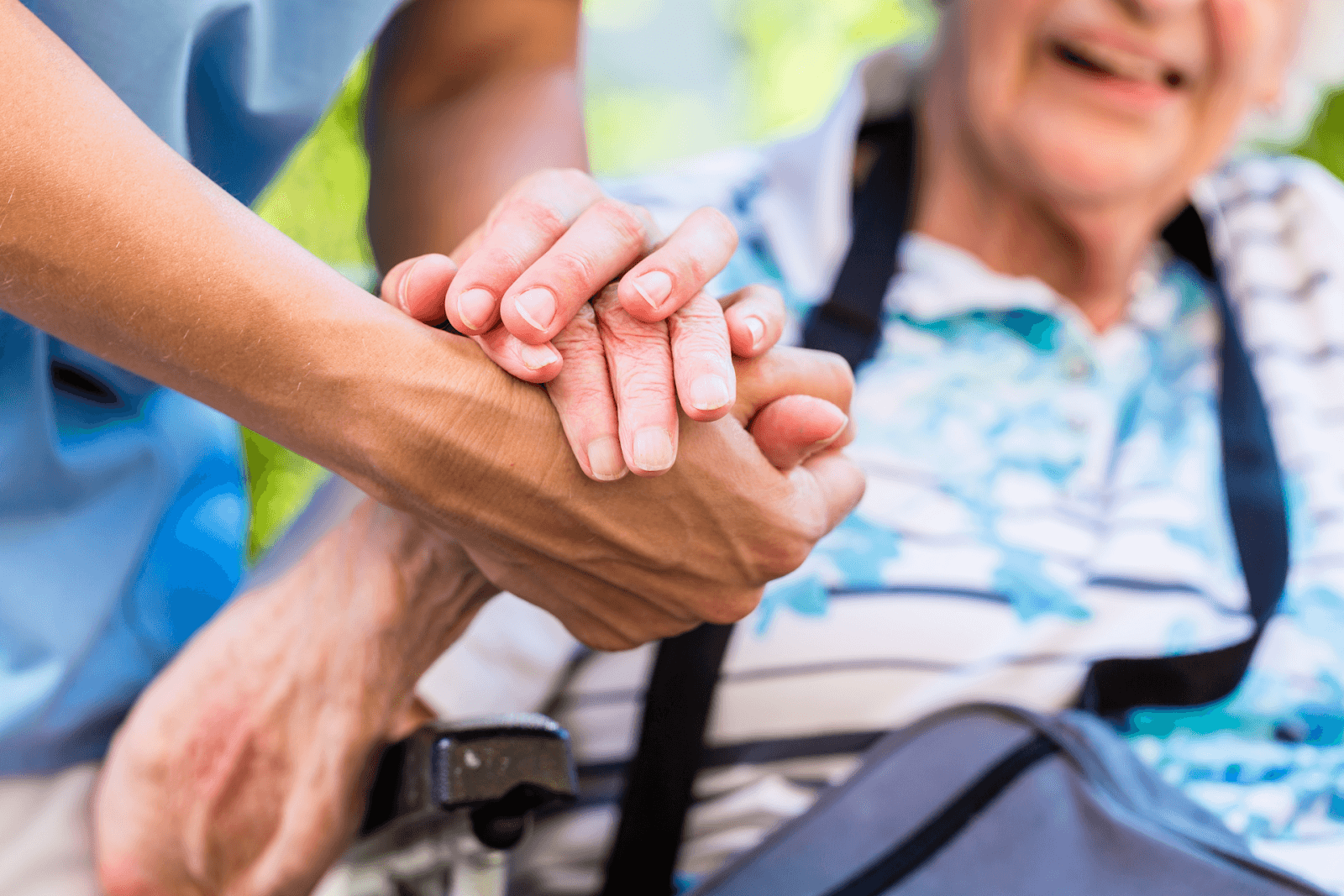What Does a Caregiver Do?
Home caregiver duties and caregiver responsibilities are wide-ranging. This individual provides ongoing care for each patient in accordance with his or her needs. As a result, the definition of caregiver differs from one patient to the next. If your friend or family member needs assistance with mobility, is struggling to prepare meals or is incontinent, the caregiver will tailor care accordingly. Alternatively, some patients need private duty nursing throughout the day, medication reminders and social stimulation.
Other senior citizens need more general assistance that spans mobility assistance, medication guidance, personal bathing and grooming and more. What matters most is that the individual you care deeply for is provided with the assistance he or she needs to live with dignity and remain at home as opposed to a nursing home or an assisted living facility. The best caregivers even go as far as discussing the patient’s idiosyncratic needs with fellow medical professionals and family members, ensuring everyone is on the same page in terms of the best treatment modalities and the overarching care approach.
Who Can Become a Caregiver?
Anyone with a good heart, a willingness to work and an altruistic character can become a caregiver. There is no need to invest year after year in education and training to become a caregiver. The requirements for home health aides are not as extensive as those for a registered nurse (RN) or certified nursing assistant (CNA). However, if private duty nursing care is necessary, a qualified nurse will serve as the home health aide.
In-home caregivers pass through training to ensure they can provide high-quality care and earn a certification to provide care as a home health aide. Above all, what matters most is that the individual who wants to work as a caregiver is genuinely interested in making life better for others, especially senior citizens in need of assistance in the home.
Types of Caregivers
At this point, you are likely wondering, “What is a primary caregiver?” and “What is a live-in caregiver?” Let’s take a look at the caregiver definition and the different types of caregivers. The caregiver assigned to your family member or friend who wants to remain in the comfort of home will be uniquely suited to provide the right type of care for the individual you love so much. In short, no two caregivers are exactly the same.
The best in-home care providers customize care to each patient’s specific needs. The overarching aim of this care is to enhance the patient’s quality of life and provide his or her family members with an invaluable peace of mind knowing the right type of care is provided.
Caregiver duties for the elderly are distinct from those for the disabled. Plenty of elderly patients who desire to remain in their home benefit from private duty nursing care from a live-in caregiver. This hourly nursing care is long-term, providing care for senior citizens who are saddled with illness, disability or injury. This is by far the most in-depth and comprehensive type of caregiving in the home.
Other seniors benefit from a personal sitter who provides personal care as well as companionship. If the senior in your life struggles to remember to take medication, cannot prepare meals or is suffering from dementia due to old age, do not hesitate to lean on a caregiver for personal care and companionship. Even if your loved one is simply looking for someone to interact with and provide reminders about medication or requires assistance with the activities of daily living, a personal sitter will help.
Benefits of a Having a Caregiver
The benefits of an in-home caregiver are innumerable. Ask your friends and colleagues who have tapped into this service about its merits and you will find it greatly increases seniors’ quality of life. An in-home care provider makes it easier to manage mobility challenges to get around the house that much more easily. Caregivers also provide daily companionship that helps stimulate seniors both socially and mentally. This stimulation lifts the spirit and provides the elderly individual in your life with something to look forward to, especially when living alone or far away from family and friends.
Perhaps the most important benefit of caregiving in the home is the ability to safely age in place. An in-home caregiver removes the burden of care from you, your family and the friends of the senior you love so much, liberating you to focus on your own life. A caregiver helps the senior prepare meals, take medications, perform the activities of daily living and live independently without losing dignity.

Are Caregivers Considered Healthcare Workers?
There is much discussion as to whether caregivers are healthcare workers. The question of “What are the responsibilities of a caregiver?” helps answer “Are caregivers healthcare workers?” These benevolent professionals provide assistance in terms of patient bathing, dressing, grooming, feeding and mobility. This extensive assistance qualifies caregivers as healthcare workers.
Caregiver vs. Caretaker
Caretakers and caregivers are not one in the same. The difference between caregiver and caretaker extends beyond semantics. Caregivers provide services to the disabled and elderly ranging from meal preparation to medication reminders, social companionship and assistance with daily activities. A caretaker is more of a life manager who helps the senior citizen make decisions in terms of living arrangements, finances, medical treatment, etc.
Should I Hire a Caregiver for My Loved One?
Your loved one’s need for in-home caregiving ultimately depends on his or her unique condition. If your parent or grandparent cannot move throughout the house without assistance, forgets to take medications, is struggling to prepare meals or has dementia, he or she can greatly benefit from the assistance of a caregiver. Furthermore, seniors who need assistance to complete the activities of daily living, often referred to as ADLs, need assistance from a caregiver.
A senior who struggles to bathe, dress, perform personal hygiene, prepare meals and do things around the house is in need of assistance. Even if your loved one or friend who has reached age 60+ doesn’t admit he or she needs assistance, he/she will certainly consider it if you broach the subject. Plant the metaphorical seed of homecare with an initial conversation and let your loved one think about it. Your parents, grandparent, aunt, uncle or friend might warm up to the idea of in-home assistance as time progresses. If you would like to learn more about what it means to be a caregiver and what is the role of a caregiver, contact us today. You can find out more about our caregiver services by dialing 1-800-611-6390 or emailing us at hello@home-health.io.


